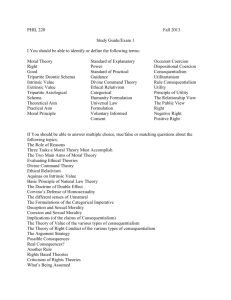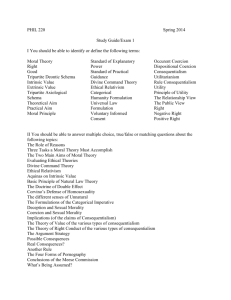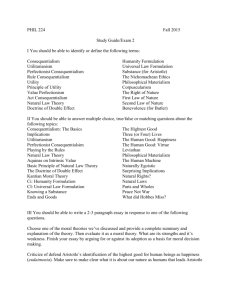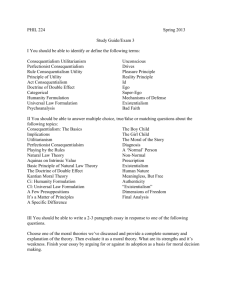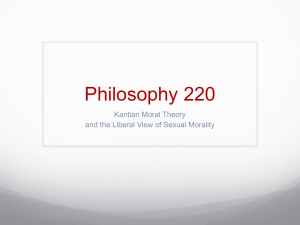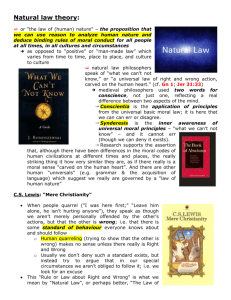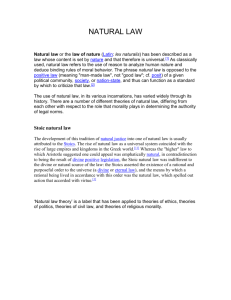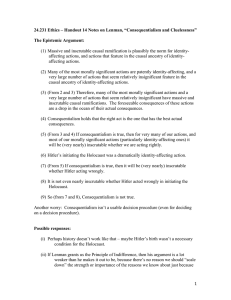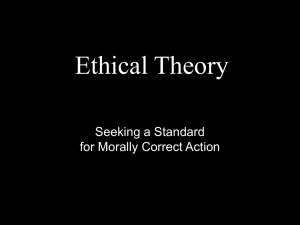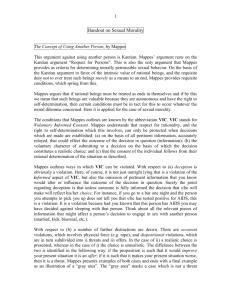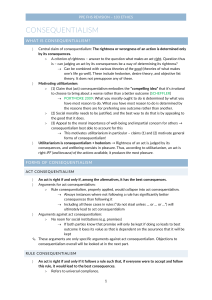PHIL 220
advertisement
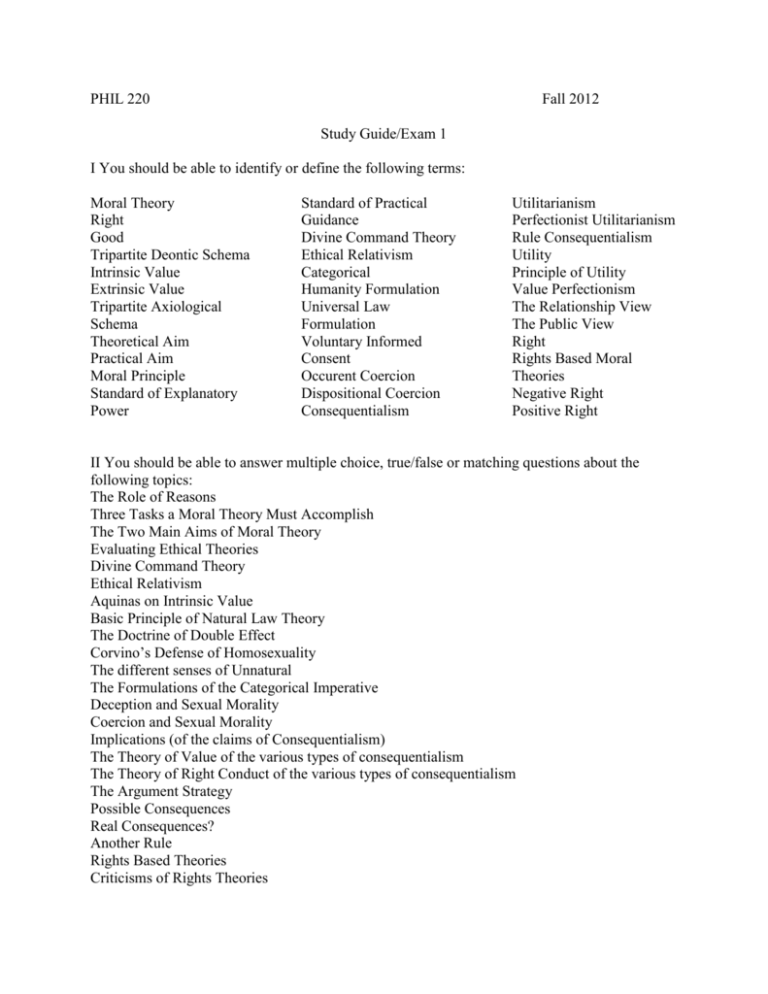
PHIL 220 Fall 2012 Study Guide/Exam 1 I You should be able to identify or define the following terms: Moral Theory Right Good Tripartite Deontic Schema Intrinsic Value Extrinsic Value Tripartite Axiological Schema Theoretical Aim Practical Aim Moral Principle Standard of Explanatory Power Standard of Practical Guidance Divine Command Theory Ethical Relativism Categorical Humanity Formulation Universal Law Formulation Voluntary Informed Consent Occurent Coercion Dispositional Coercion Consequentialism Utilitarianism Perfectionist Utilitarianism Rule Consequentialism Utility Principle of Utility Value Perfectionism The Relationship View The Public View Right Rights Based Moral Theories Negative Right Positive Right II You should be able to answer multiple choice, true/false or matching questions about the following topics: The Role of Reasons Three Tasks a Moral Theory Must Accomplish The Two Main Aims of Moral Theory Evaluating Ethical Theories Divine Command Theory Ethical Relativism Aquinas on Intrinsic Value Basic Principle of Natural Law Theory The Doctrine of Double Effect Corvino’s Defense of Homosexuality The different senses of Unnatural The Formulations of the Categorical Imperative Deception and Sexual Morality Coercion and Sexual Morality Implications (of the claims of Consequentialism) The Theory of Value of the various types of consequentialism The Theory of Right Conduct of the various types of consequentialism The Argument Strategy Possible Consequences Real Consequences? Another Rule Rights Based Theories Criticisms of Rights Theories What’s Being Assumed Is Porn the Problem Berlin on Negative and Positive Liberty Another Harm? Too Quick? III You should be able to write a 2-3 paragraph essay in response to one of the following questions. Summarize the Catholic Church’s position on sexual morality as an example of a Natural Law Thoery approach to the question. Argue for or against the Church’s position on some or all of the normative conclusions about sexual behavior, focusing on the intrinsic goods identified by the theory. In his essay “Why Shouldn’t Tommy and Jim Have Sex ,“ John Corvino defends homosexuality from the charge that it is “unnatural” and that it poses a risk of special harm. Detail his arguments in defense of homosexuality in as much detail as possible before criticizing them or defending them from possible criticism. Summarize as completely as possible Mappes’ advocacy of the liberal view of sexual morality in terms of his rejection of the use of deception and coercion in sexual interaction. Argue for or against the liberal view on sexual morality using Mappes’ position as a reference point. Criticize or defend Gallagher’s arguments against what she calls the relationship view of marriage and in favor of the public view. As part of your discussion argue in faovr of or opposition to same-sex marriage. Argue for or against the censorship of pornography on either consequentialists or Rights-Based Theory grounds. As part of your argument, make sure to discuss either Strossen’s or Dworkin’s arguments.
